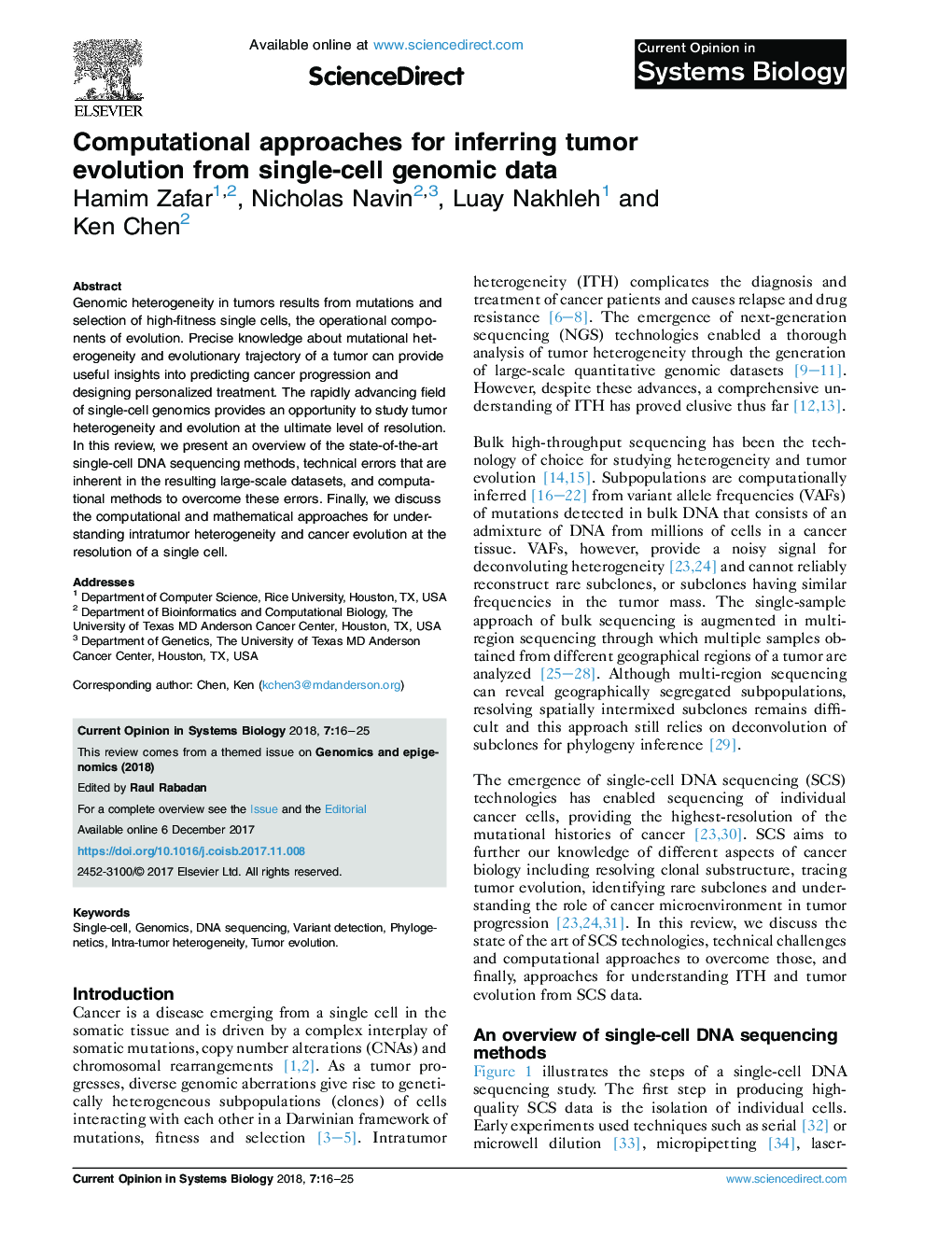| Article ID | Journal | Published Year | Pages | File Type |
|---|---|---|---|---|
| 8918072 | Current Opinion in Systems Biology | 2018 | 10 Pages |
Abstract
Genomic heterogeneity in tumors results from mutations and selection of high-fitness single cells, the operational components of evolution. Precise knowledge about mutational heterogeneity and evolutionary trajectory of a tumor can provide useful insights into predicting cancer progression and designing personalized treatment. The rapidly advancing field of single-cell genomics provides an opportunity to study tumor heterogeneity and evolution at the ultimate level of resolution. In this review, we present an overview of the state-of-the-art single-cell DNA sequencing methods, technical errors that are inherent in the resulting large-scale datasets, and computational methods to overcome these errors. Finally, we discuss the computational and mathematical approaches for understanding intratumor heterogeneity and cancer evolution at the resolution of a single cell.
Related Topics
Physical Sciences and Engineering
Computer Science
Computer Science (General)
Authors
Hamim Zafar, Nicholas Navin, Luay Nakhleh, Ken Chen,
